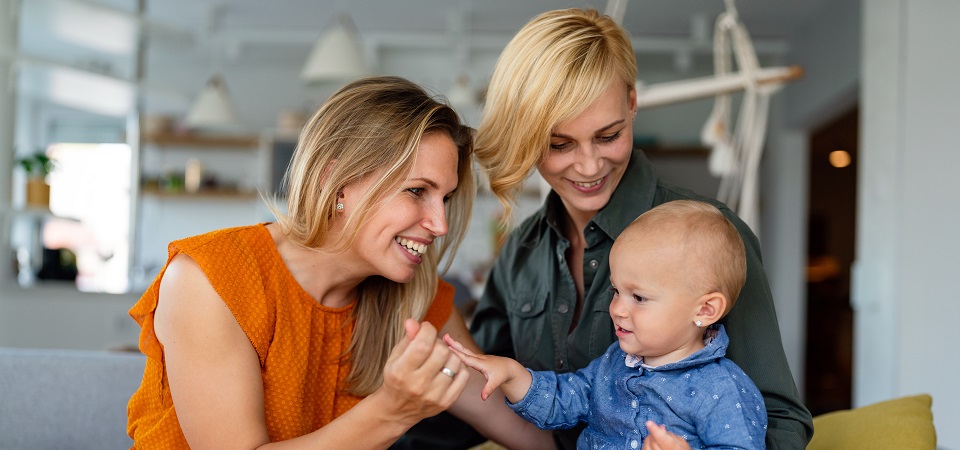Same-sex couples who jointly raise and parent a child together is an increasingly common scenario. But what happens to the parental rights of the partner of the biological mother if the couple later separate?
Here, Louise Daniel, who is an associate solicitor at WHN specialising in family law, explores the potential child care issues for unmarried and same-sex couples who separate, and provides advice on how parental responsibility and contact can be addressed.
Parental responsibility
Parental responsibility is a legal concept which refers to the rights, duties and responsibilities that a parent has towards a child.
Mothers automatically obtain parental responsibility when they give birth, but unmarried fathers and same-sex couples who aren’t in a civil partnership don’t automatically have the same parental legal rights as those who are.
Where parents are of the opposite sex, if a father’s named on the birth certificate and the child was born after December 2003, then an unmarried father will still obtain parental responsibility. If a father’s name is not on a birth certificate or the child was born prior to this, then a father may only obtain parental responsibility either via an agreement with the mother or through a court application.
Same-sex parents
Similarly, same-sex couples who have a child – and only one of whom is the natural parent – will both have parental responsibility if they had entered into a civil partnership prior to starting the fertility treatment, such as donor insemination or IVF. In these cases, the mother who is carrying the child will automatically gain parental responsibility, while the partner will also have parental responsibility if they are named on the birth certificate.
Obtaining parental responsibility
Complications can arise for same-sex parents who are not in a civil partnership, as current law means the partner who does not give birth won’t automatically be granted parental rights and may need to make an application to the court as well as obtaining the biological mother’s consent before being registered as a parent on the birth certificate.
In these cases, parental responsibility can be obtained by either applying for it if a Parental Responsibility Agreement has previously been made, or by entering into a civil partnership with the mother or making a Parental Responsibility Agreement or jointly registering the birth.
Complications
The issue is complicated further where same-sex couples who are not in a civil partnership, have a child together and thereafter separate, as illustrated by the recent case of FC v MC.
The case follows a same-sex couple who agreed to have a child before separating around two years later. Matters became acrimonious and the non-biological parent applied to the court for both contact and parental responsibility. The natural mother objected, but the court found that the non-biological parent was clearly committed to the child and was simply seeking the rights to ratify their status as a parent.
As in any case involving a child, the court’s primary concern is always the welfare of the child and in this case, a joint lives with/shared care order was made, which automatically provided the non-biological parent with parental responsibility, while also confirming appropriate child contact arrangements.
Within any same-sex relationship, if consideration is being given to having a child together and the parties are not in a civil partnership, then entering into a Parental Responsibility Agreement when the child is born is vital to help protect your position as a parent should your relationship deteriorate with your partner in the future.
The parental rights of same-sex couples is a complex area of law and anyone finding themselves in these difficulties post-separation should obtain expert family law advice at the earliest opportunity.
Louise Daniel is an associate solicitor based at WHN’s Haslingden office. Louise deals with all aspects of family law issues including children law matters. She is a member of the Law Society’s Family Law Panel and a member of Resolution. To contact Louise, call her on 01706 213 356 or email louise.daniel@whnsolicitors.co.uk














